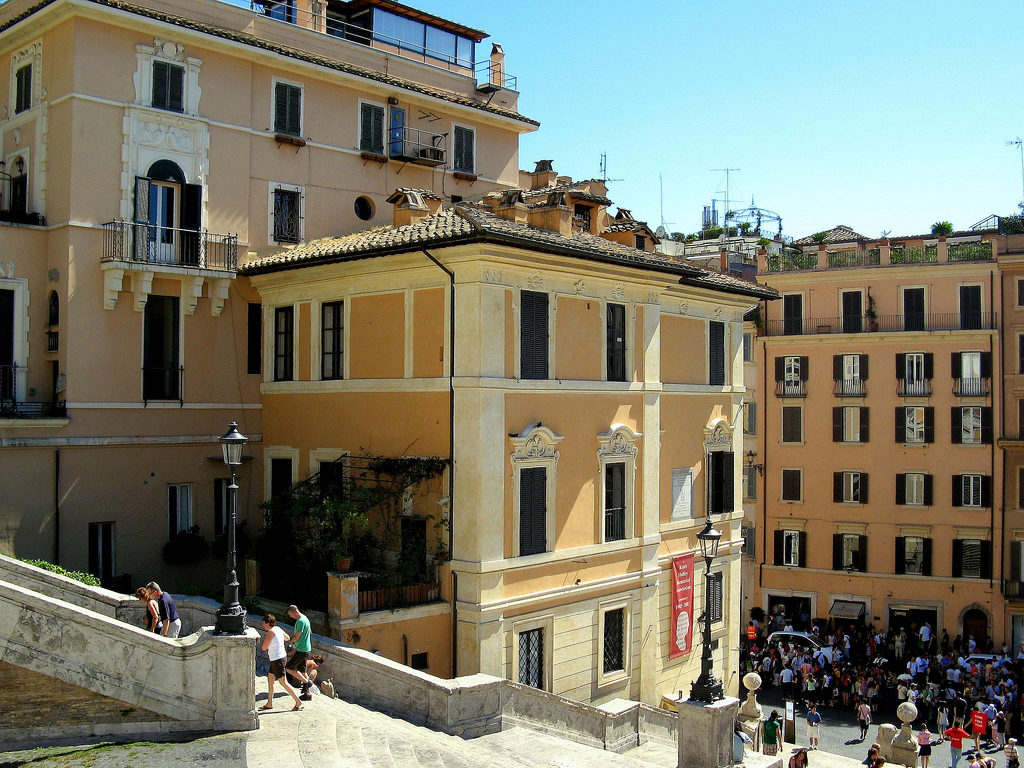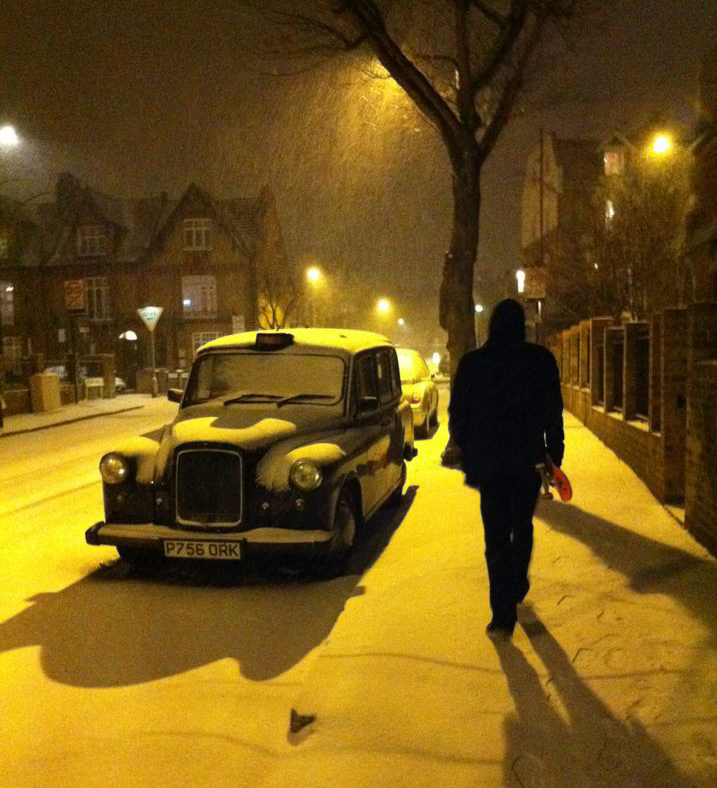Outside the town of Price stretched hundreds of miles of dusty sagebrush ringed by near and far cliffs of dirt and rock. Yet in the little town proper, thanks to a primitive grid of irrigation canals—mud walls buttressed by ancient Model-T wrecks—there were grassy lawns and trees, like the glorious apricot tree under which my father, my mother, my sister, and I sat that late summer Sunday afternoon with the Russian couple whose names I can no longer recall.
All posts tagged: Essays
Fraternity
He calls me and says, “I got a good North Country story for ya.” Then after the story he says, “I don’t know, man. I just feel like it would be cool to write something about the people up here. They’re such fuckin’ characters.” Or he’ll say, “If we could just write something about Mom and Dad, you know. I think our upbringing was super unique.” He has also talked about writing rants about people who don’t know the fucking speed limits around here, who hold him up on the two-lane highways that wind through our mountains. Or about making a website that would provide snarky news about the North Country, with headlines like Wilburs Still Fucking Inbred and Way to Fuck It Up, APA. We’ve been having one-way conversations about his writing projects for years. Sometimes he talks about working on them together, and sometimes he talks about doing it himself. I tend not to say much.
The Radical Familiar: Matisse’s Early Nice Interiors
The paintings may be best known for what they are not. They were made on the heels of work now considered Matisse’s most groundbreaking, the paintings from the period between 1907 and 1917 when he engaged with the early perceptions of modernism. His trajectory through these years widened his ambitions and shows him becoming more cutthroat within them, first leaving behind the saturated exuberance of fauvism, then, by degrees, flattening color and form into strange and austere near-abstractions.
Meandering Zone
We are barreling north out of Salt Lake City, and David is talking about the clouds. “They don’t look like the clouds in the East,” he says. “They’re uniform, but fuzzy.” Out the window, the topaz sky shimmers over the mountains. The snowy peaks echo the color of the fuzzy western clouds, which stretch across the air like floating bedsheets.
Reading in Public: An Elegy
I was riding the F train home the other day reading Colson Whitehead’s The Underground Railroad. The local went express at Jay Street in Brooklyn, and I exchanged an exasperated smile with a woman on the platform. “Is that good?” she asked, pointing to the book. “I’ve been meaning to read it.” I called Whitehead’s disturbing way of mixing history and invention in his novel about slavery, “steampunk abolitionist” and she liked that. Manners obliging, I asked what she was reading. “Something with Ove in the title.” It was funny in surprising ways, but she couldn’t remember the name. We agreed nothing induces amnesia like being asked what you’re reading. The name and author came to her on the local. A Man Called Ove by Frederik Bachman. I promised to look it up. I got off at the next stop feeling rich for our impromptu book club, and grateful for a moment of literary communion that’s all but disappeared.
Keats-Shelley House, Rome, Italy
By AMY WELDON

Hoisting our backpacks, my students and I start up a narrow staircase that points us left and right. In November 1820, John Keats and his friend Joseph Severn climbed these stairs to two small rooms above the Spanish Steps, ready to stay until the end, which they knew wouldn’t be far away. Nevertheless, they rented a piano. Getting that piano back downstairs must have been a nightmare. Not to mention the armloads of drapes and rugs, and the sheets and the pillows, and the mattress, stained with sad rings of blood. But it was the law: all movable furnishings of a consumptive’s sickroom, even the wallpaper, must be burned. And then, on a late February day in 1821, would have come the carrying-down of Keats’ small body itself: a twenty-five-year-old man, five feet tall and wasted to the weight of an adolescent, the luminous eyes closed for good.
Margin of Error

The night my colleagues and I sat around the bistro table and stockpiled our grief—I couldn’t get out of bed, said one; I cried to strangers, replied another—the night we compared the protests we’d attended and petitions we’d signed and officials we’d called; the night we declared we were going broke from our impulsive, panicked donations; the night we marveled at how many specials our waiter had memorized—scores of sauces and sides; the night we failed to retain a single one; the night I showed pictures of my son scrawling “Love Wins” on pink paper; the night we traded stats like playing cards—how many women, how many stayed home—even though stats were the thing that sparked our grief in the first place; the night we realized, with fright, that we didn’t know what or whom to trust: this, my friend, is the night you learned I’d betrayed you.
Off Edgware Road
I first went to London as an undergrad, on a yearlong study abroad program in University College London’s intimidating English department. When I returned very reluctantly to the US, I often dreamed about London, but in those dreams I would find familiar places moved, distorted, and the people I missed not where I looked for them. After graduation, I moved again to the UK for a master’s program, but mainly to get back to London. I had discovered, after a few panicky weeks of foreign disorientation, that the city suited me—and also that my quiet home in Massachusetts no longer did. At 22, one seemed to preclude the other; London felt strange and exotic in a way that had become a daily necessity.
One Monsoon

One Wednesday morning late in the rainy season of 1964, I sat at the open window of my room overlooking the tiny hill town of Kunchha, where I lived. I was watching huge clouds expand overhead, upward and outward across the blue Himalayan sky. I knew that by noon the temperature and the humidity would rise proportionately. Those cumulonimbus clouds are the largest, most magnificent and dramatic of the nimbuses, and experience told me that they were the harbingers of a rainstorm that would blow in around tea time.
Raiding
In seventh grade, your friend Megan invites you to go raiding, which means sneaking around in dark clothes and throwing feed corn on other people’s houses. This is rural Pennsylvania, a small town of rolling fields and old steel mills. It’s fall, cold. The point is trespassing, minor vandalism, the fact that you are twelve and living in a place where nothing ever happens.
You start at Megan’s house in a damp wooded valley not far from the river and walk toward the highway. It’s dark out, though probably not any later than seven or eight o’clock. Back here, in her neighborhood, there are steep hills, one after another, and the houses are set too far back from the road for an easy escape, and so for a while, the three of you—Megan, you, her neighbor-friend Derek—just walk.








